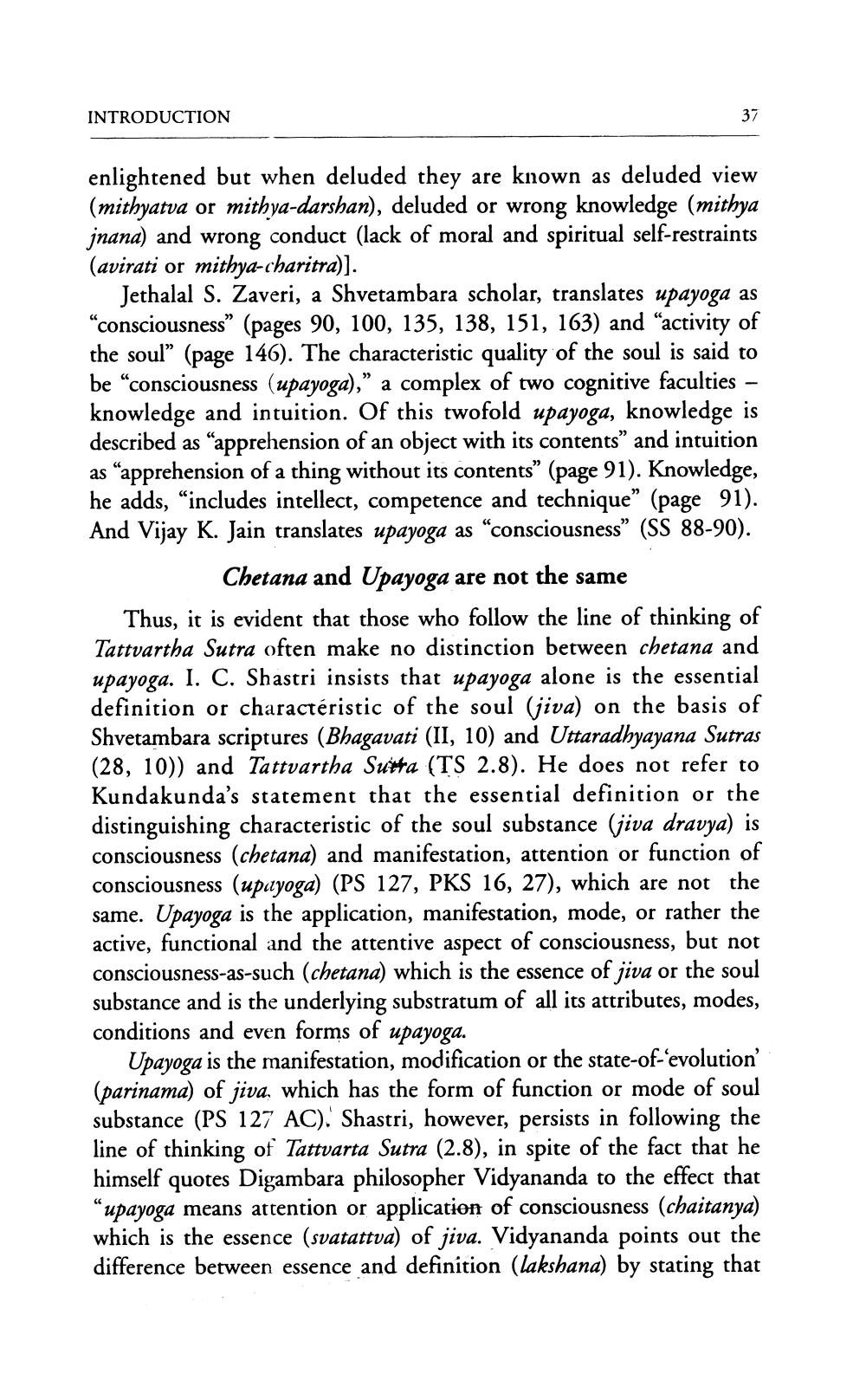________________
INTRODUCTION
enlightened but when deluded they are known as deluded view (mithyatva or mithya-darshan), deluded or wrong knowledge (mithya jnana) and wrong conduct (lack of moral and spiritual self-restraints (avirati or mithya-charitra)].
Jethalal S. Zaveri, a Shvetambara scholar, translates upayoga as "consciousness” (pages 90, 100, 135, 138, 151, 163) and “activity of the soul” (page 146). The characteristic quality of the soul is said to be “consciousness (upayoga),” a complex of two cognitive faculties - knowledge and intuition. Of this twofold upayoga, knowledge is described as “apprehension of an object with its contents” and intuition as “apprehension of a thing without its contents” (page 91). Knowledge, he adds, “includes intellect, competence and technique” (page 91). And Vijay K. Jain translates upayoga as “consciousness” (SS 88-90).
Chetana and Upayoga are not the same Thus, it is evident that those who follow the line of thinking of Tattvartha Sutra often make no distinction between chetana and upayoga. I. C. Shastri insists that upayoga alone is the essential definition or charactéristic of the soul (jiva) on the basis of Shvetambara scriptures (Bhagavati (II, 10) and Uttaradhyayana Sutras (28, 10)) and Tattvartha Sutta (TS 2.8). He does not refer to Kundakunda's statement that the essential definition or the distinguishing characteristic of the soul substance (jiva dravya) is consciousness (chetana) and manifestation, attention or function of consciousness (upayoga) (PS 127, PKS 16, 27), which are not the same. Upayoga is the application, manifestation, mode, or rather the active, functional and the attentive aspect of consciousness, but not consciousness-as-such (chetana) which is the essence of jiva or the soul substance and is the underlying substratum of all its attributes, modes, conditions and even forms of upayoga.
Upayoga is the manifestation, modification or the state-of-'evolution (parinama) of jiva, which has the form of function or mode of soul substance (PS 127 AC). Shastri, however, persists in following the line of thinking of Tattvarta Sutra (2.8), in spite of the fact that he himself quotes Digambara philosopher Vidyananda to the effect that “upayoga means attention or application of consciousness (chaitanya) which is the essence (svatattva) of jiva. Vidyananda points out the difference between essence and definition (lakshana) by stating that




